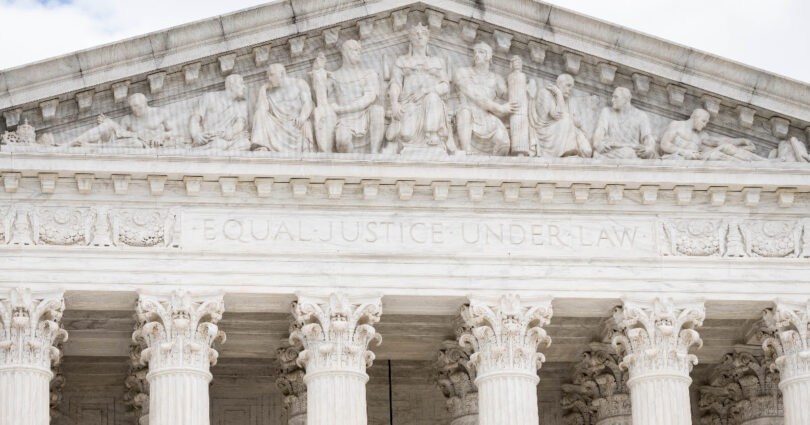Supreme Court Rules Idaho May Enforce Its Abortion Ban, Even in Medical Emergencies
The Supreme Court ruled Friday that Idaho may enforce its abortion ban, including in medical emergencies, as the fight over the law plays out in court.
The court said it would hear arguments in April and put on hold a lower court ruling that had blocked the law in medical emergencies. The lower court ruling came following a lawsuit filed by the Biden administration.
The challenge against the Idaho law gives the high court its second major abortion dispute since it overturned Roe v. Wade in 2022, allowing states to make their own laws regarding abortion access. The court will also hear in the coming months a challenge to the Food and Drug Administration’s rules for obtaining the abortion pill mifepristone.
In the Idaho case over hospital emergencies, the administration has argued that hospitals who receive Medicare funds are required by federal law to provide emergency care, potentially including abortion, regardless of a state law prohibiting abortion.
The administration issued guidance about the federal law – the Emergency Medical Treatment and Labor Act – two weeks after Roe v. Wade was overturned. A month later, the administration sued Idaho.
U.S. District Judge B. Lynn Winmill in Idaho sided with the administration. A judge in a separate case in Texas sided with the state.
President Biden released a statement Friday night objecting to the Supreme Court’s decision, saying his administration “will continue to defend a woman’s ability to access emergency care under federal law.”
Idaho’s law makes it a crime with a prison term of up to five years for anyone who performs or assists a woman in an abortion.
The administration claims that the Emergency Medical Treatment and Labor Act mandates that health care providers must perform abortions for emergency room patients when needed to treat an emergency medical condition, including severe bleeding, preeclampsia and certain pregnancy-related infections, even if a state’s abortion restrictions prohibit such a response.
“For certain medical emergencies, abortion care is the necessary stabilizing treatment,” Solicitor General Elizabeth Prelogar wrote in an administration filing at the Supreme Court.
The state argued that the administration was misusing a law intended to prevent hospitals from ignoring patients and imposing “a federal abortion mandate” on states. The Emergency Medical Treatment and Labor Act “says nothing about abortion,” Idaho Attorney General Raul Labrador told the court in a brief.
The federal appeals court in New Orleans came to the same conclusion as Labrador in a ruling Tuesday. A three-judge panel ruled that the administration cannot use the Emergency Medical Treatment and Labor Act to require hospitals in Texas to provide abortions for women whose lives are at risk due to pregnancy.
The appeals court affirmed a ruling by U.S. District Judge James Wesley Hendrix, who wrote that adopting the administration’s view would force physicians to place the health of the pregnant person over that of the fetus or embryo even though the Emergency Medical Treatment and Labor Act “is silent as to abortion.”
Following Winmill’s ruling, Idaho lawmakers won an order from a panel of the 9th U.S. Circuit Court of Appeals allowing the law to be fully enforced. However, a larger contingent of 9th Circuit judges threw out the panel’s ruling and set arguments for later this month.
This is an excerpt from Fox News.
Scroll down to leave a comment and share your thoughts.


Leave a Comment